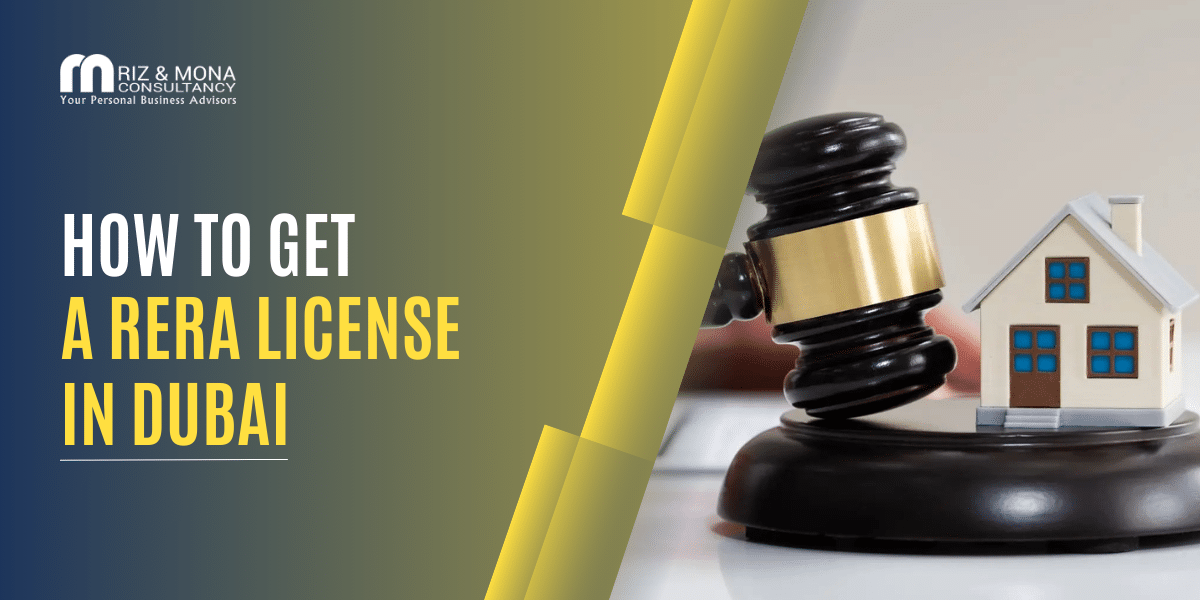Key Regulatory Authorities in UAE Real Estate
The UAE’s real estate sector is regulated by various authorities that oversee compliance, licensing, and real estate transactions, ensuring transparency, investor protection, and fair business practices. Among these, the Real Estate Regulatory Agency (RERA) plays a critical role in Dubai property market, enforcing legal standards and protecting all parties involved.
Understanding RERA & Its Role in Dubai’s Real Estate Sector
RERA in Dubai was introduced to eliminate fraud, enforce ethical practices, and create a structured real estate market. RERA registration is mandatory for real estate brokerage in Dubai, developers, property managers, and landlords to ensure compliance with legal guidelines and maintain market transparency.
- Licensing & Compliance: Regulates and certifies brokers, developers, and property managers. Real estate professionals must complete a RERA-approved training course and pass an exam before obtaining their license.
- Off-Plan Project Oversight: Mandates escrow accounts to safeguard buyers’ investments.
- Rental Market Regulation: Manages the RERA Rental Index to prevent unfair pricing.
- Contract Standardization: Implements mandatory RERA forms for transaction transparency.
- Dispute Resolution: Oversees the Dubai Rental Dispute Settlement Center (RDSC).
- Regulating Property Transactions – Ensures legal compliance for sales, leases, and ownership transfers.
- Licensing & Compliance Monitoring – Issues licenses and conducts audits on real estate professionals.
- Investor & Tenant Protection – Enforces Ejari registration, making rental contracts legally binding.
- Rental Market & Dispute Resolution – Prevents excessive rent hikes and settles disputes via RDSC.
- Form A – Seller’s agreement with a broker.
- Form B – Buyer’s agreement with a broker.
- Form F – Standard sale contract.
- Form U – Termination of brokerage services.
- Form I – Appointment of a property manager.
How to Get a RERA License & Operate in Dubai’s Real Estate Market
Register for the RERA Training Course
Conducted by the Dubai Real Estate Institute (DREI), covering property laws, ethics, and regulations.
Pass the RERA Exam
Exam requirements vary based on qualifications:
-
- Lower passing score for bachelor’s degree holders.
- Higher score required for non-degree holders.
Apply for a Broker ID & RERA License (via Trakheesi, DLD’s online system)
Required documents:
-
- Emirates ID & passport copy
- Residency visa (for non-citizens)
- Good Conduct Certificate (Dubai Police)
- Trade license (for agencies)
- Payment of licensing fees (varies by business type)
License Issuance & Renewal
Valid for one year, with renewal requiring proof of compliance and fee payment.
Start Your Business Journey with Our Professional Support!
UAE Real Estate Market Insights & Investment Trends (2025 Update)
The UAE’s real estate landscape is evolving, with new opportunities driven by technology, lifestyle shifts, and government policies. Key trends include:
- Smart Real Estate & PropTech Adoption – AI-driven property management, blockchain-based transactions, and virtual real estate tours are reshaping the industry.
- Short-Term Rentals & Holiday Homes – The rise of platforms like Airbnb and Dubai’s investor-friendly short-term rental policies are creating new revenue streams.
- Sustainable & Green Developments – Increased demand for eco-friendly projects, such as those complying with Dubai’s Al Sa’fat green building standards.
Regulatory developments in 2025 aim to enhance transparency, investor security, and market stability. Expected changes include:
-
- Stricter Compliance on Off-Plan Sales – Developers may face tighter escrow requirements to protect buyers from project delays.
- Expanded Foreign Ownership Policies – More freehold areas could be opened to foreign investors, increasing demand.
- Advancements in Digital Transactions – Blockchain and AI-powered contract verification could streamline property dealings.
Avoiding Compliance Risks & Legal Pitfalls
While the UAE’s real estate sector offers strong investor protections, non-compliance with regulations in real estate transactions can lead to fines, license suspensions, and legal disputes. Understanding these risks helps brokers, developers, landlords, real estate agents, and investors operate safely within the market.
Key Compliance Challenges & How to Avoid Them
FAQS (Frequently Asked Questions)
What is the difference between DLD and RERA?
The Dubai Land Department (DLD) oversees the overall management and regulation of Dubai’s real estate sector, including property registration and dispute resolution. The Real Estate Regulatory Agency (RERA), operating under DLD, specifically regulates real estate professionals and ensures compliance with property laws.
What is real estate regulatory agency RERA exam?
To become a licensed real estate professional in Dubai, candidates must complete a training course at the Dubai Real Estate Institute (DREI) and pass the RERA registration exam.
What is a Real estate regulatory agency RERA index calculator?
The RERA Rent Calculator is an online tool provided by RERA to help tenants and landlords determine the legally permissible rental increase based on current market rates.
What real estate regulatory agency in Sharjah?
In Sharjah, the Real Estate Registration Department (SRERD) serves as the regulatory authority overseeing property transactions and registrations.
How to start a real estate business in Dubai?
To start a real estate business in Dubai, one must obtain a trade license from the Department of Economic Development (DED) and secure RERA approval by completing the necessary training and exams.
How does the RERA rent calculator Dubai work?
The RERA Rent Calculator allows users to input property details to assess permissible rental increases, ensuring compliance with Dubai’s rental laws.
How to file a complaint to RERA Dubai?
To file a complaint with RERA Dubai, individuals can use the Dubai REST application or visit the Rental Dispute Center to submit their grievances regarding real estate matters.











